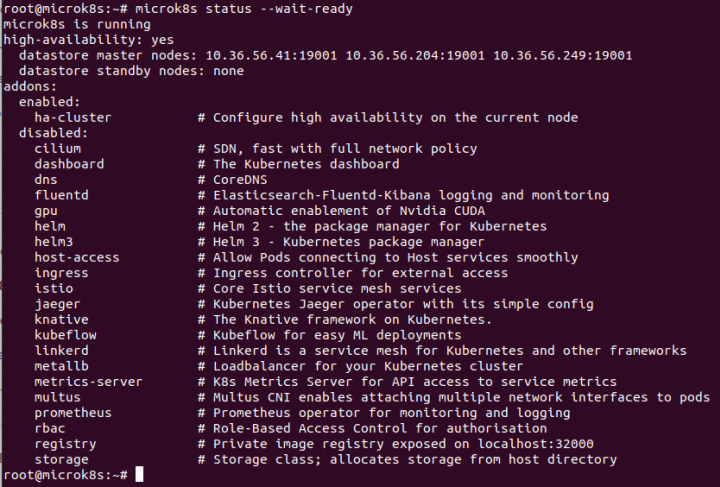Alex Chalkias
on 9 July 2020
MicroK8s HA tech preview is now available
High availability (HA) for MicroK8s, the lightweight Kubernetes, is now available as a tech preview for Linux, Windows and macOS. The Kubernetes control plane can now be distributed across multiple nodes, bringing resiliency to the cluster while maintaining a low footprint using Dqlite, the distributed SQL engine as the Kubernetes datastore.
On Linux, you can download and test highly available MicroK8s from the ‘ha-preview’ branch:
sudo snap install microk8s --classic --channel=latest/edge/ha-preview
If you already have MicroK8s, learn how to upgrade to the ha-preview channel and set up your MicroK8s HA cluster in the MicroK8s HA documentation.
If you want to test the HA feature on Windows and macOS, follow the corresponding installation instructions and run the following command after the installation is complete:
multipass exec microk8s -- sudo snap refresh microk8s --classic --channel=latest/edge/ha-preview
Note that the ha-preview version comes with the high availability feature enabled by default. This means that adding at least two nodes to the cluster will automatically form a highly available control plane across the three nodes.
Once you have added the additional nodes to the HA cluster, microk8s status output will look like this:

We would love to hear your feedback on this new feature, so feel free to reach out to our team on Discourse, the Kubernetes Slack #microk8s channel or raise any bugs you might find on MicroK8s GitHub.



